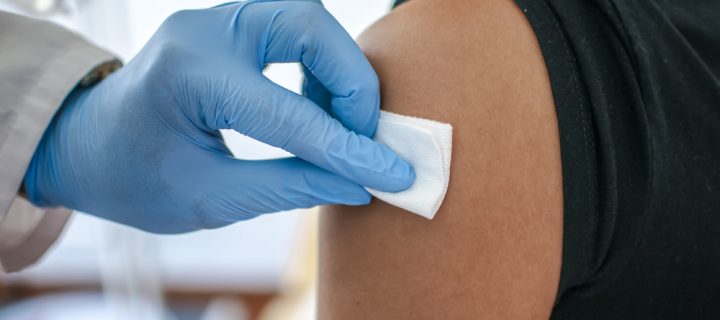If you have no symptoms you might be able to skip quarantine if you meet these other requirements.
Knowing what you can and cannot do after receiving your coronavirus vaccine can be tricky. Once you are inoculated you are protected to a large degree from falling seriously sick with the coronavirus. This being said, experts say you should still act like you could get sick, at least for a while.
For what are you off the hook? If you are living in the US, one thing you don’t need to do if you have been vaccinated is go into quarantine if you have been exposed to someone who has the virus. The Centers for Disease Control and Prevention (CDC) states on their website that you can avoid quarantining if you meet the following criteria. It’s pretty straightforward. First, you must be fully vaccinated, (you have to have received two doses of coronavirus vaccine). Secondly, at least two weeks must have passed since you got your second dose of vaccine, but not more than three months. Finally, you must be asymptomatic following your exposure to the person with COVID-19.
Why You Are Free to Roam
Scientists admit they do not yet know if you can still catch the coronavirus and pass it to someone else after you have been vaccinated. This type of thing is still being studied. What they do know is that vaccines in wider circulation in the US, (Moderna’s and Pfizer’s), do a very good job of preventing people from developing symptoms of COVID-19. Furthermore, the CDC goes on to state that “symptomatic and pre-symptomatic transmission is thought to have a greater role in transmission than purely asymptomatic transmission”. So, you have the chance to roam around post vaccination even after exposure to the coronavirus.
Related: How to Get a Coronavirus Vaccine in Your State
You may be thinking, this seems all sound and good, but is it really? Basically, the CDC says they feel the benefits people and society can gain from being allowed to go out of their house and avoid a potentially unnecessary quarantine are thought to outweigh the risks of transmitting the coronavirus if you’ve been vaccinated. So, if you got your shot, you’re good to go. (Of note, if you have already caught the coronavirus and recovered, you are subject to the same constraints and freedoms as those who have been vaccinated, the CDC says).
If you are looking for further advice, you may like knowing that Dr. Fauci, a leading expert on infectious diseases in the US, announced on February 23 that further guidance for vaccinated people will be released to the public soon.
Who Does Need to Quarantine
Many people do still need to go into quarantine if they are exposed to COVID-19. In the US, if you have been in close contact with someone who has tested positive for COVID-19 (that is, within 6 feet for 15 or more minutes), you need to go into quarantine if you do not fit the categories mentioned above. You should also quarantine if you provide home care for someone who has the virus, if you had direct physical contact with someone who has COVID-19, you ate off the same utensils or drank from the same cups, and if an infected person sneezed, coughed, or breathed on you. If you have found yourself in any of these situations, you need to stay home for 14 days after having contact with the infected person, the CDC states. Monitor yourself for symptoms, and get help if you need it.
For more on who needs to quarantine and for how long, click here.
photo credits: pixelaway/Shutterstock.com












